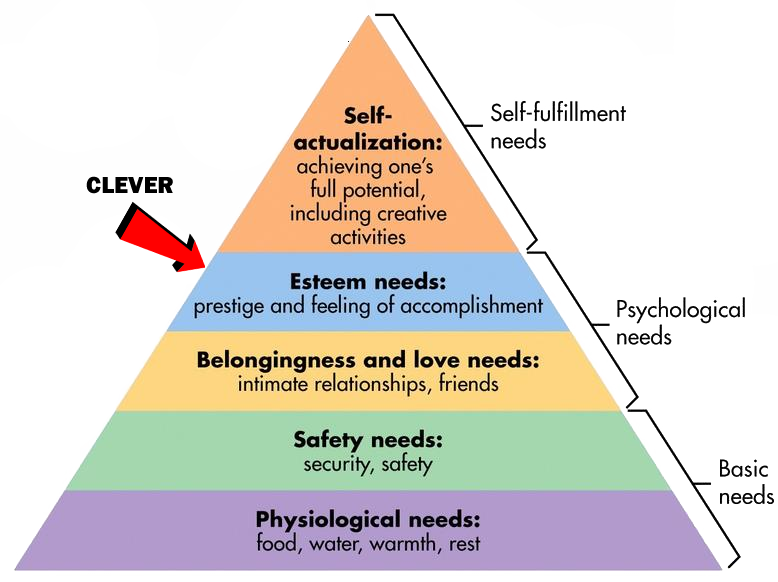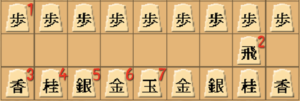 Wish fulfillment and interactive fiction go hand-in-hand. The correlation is so powerful that if your player does not feel like they are strong (or getting stronger), or if they don’t feel as (or more) attractive and intelligent than the other characters in your story, there will be a serious problem. Player desires shouldn’t just be acknowledged, they should be planned for in advance and part of your story structure.
Wish fulfillment and interactive fiction go hand-in-hand. The correlation is so powerful that if your player does not feel like they are strong (or getting stronger), or if they don’t feel as (or more) attractive and intelligent than the other characters in your story, there will be a serious problem. Player desires shouldn’t just be acknowledged, they should be planned for in advance and part of your story structure.
Because satisfying your player is crucial, I decided to start a series of blog posts addressing major desires. First I want to note: wish fulfillment is not immature or crass. Escapism, when not indulged in the extreme, serves a psychological need. Fiction helps us deal with the many shortcomings of reality.
Being Clever
Engaging in witty banter, finding decisive contradictions and exploiting your enemy’s weaknesses are examples of being clever. But cleverness means more than just wit—to express it implies a degree of power and control. In a horror story where a group of teenagers feel helpless in the hands of a crazed killer, it is the class clown with the funny one-liners who seems least afraid.
In regards to wish fulfillment, being clever means you always have the right thing to say, and that you’re ten steps ahead of everyone else. A clever person picks up on cues and has insights on what others gloss over. If something is amiss, they’ll be the first to pick up on it. And something is always amiss in stories.
Inciting Cleverness, Vicariously
 A vicarious emotion is a feeling you get from another’s victory or pain. When you watch your favorite sports team celebrate a hard-earned victory, you relate to them and their achievement and excitement. In traditional fiction, where the reader cannot interact with the story, all feelings are vicarious and felt through the protagonist.
A vicarious emotion is a feeling you get from another’s victory or pain. When you watch your favorite sports team celebrate a hard-earned victory, you relate to them and their achievement and excitement. In traditional fiction, where the reader cannot interact with the story, all feelings are vicarious and felt through the protagonist.
Even as a passive observer, we feel clever as we witness Sherlock uncovering a plot, or the sinister Frank Underwood scheming. And as for anime, there isn’t a more thrilling game of cat-and-mouse than Light Yagami and L from Death Note. These characters understand or come to understand the plots and schemes of the story. This means they come after you’ve created the puzzle they’re to solve.
Establish the puzzle first, with all its complexities, and you’ll be able to write the cleverest puzzle-solver around.
Inciting Cleverness, Directly
 This is an interactive fiction blog, and we can go beyond passive observation. We can directly instill a sense of cleverness in the reader at a personal level. But with great immersion comes great complications!
This is an interactive fiction blog, and we can go beyond passive observation. We can directly instill a sense of cleverness in the reader at a personal level. But with great immersion comes great complications!
The biggest: you have to challenge the player. You have to make a puzzle and push them to it, but not through it. Only by solving it themselves will they get rewarded by a sensation of cleverness. It’s why there is a crossword puzzle in every Sunday paper, and why Candy Crush is so addictive.
The greater the challenge, the greater the sense of reward, and the greater the number of frustrated players. This is where playtesting is crucial, because no one likes vague instructions. But since there will always be readers who will skip through your carefully-laid guide, some frustration is inevitable. If you wish to challenge the player you will have to accept this.
Challenging the Player
The Gold General slammed one of his front soldiers forward. A fearsome display of finger strength, perhaps, but my personal tactician was well-prepared. “With your kakuichi, I suspect our opponent thinks you very skilled or very foolish. Let’s assume the latter. Move the rook to the far-left column. We’ll set up for a Mino Castle in defense of his initial assault.”
A defensive play? I pondered as I brushed my thumb against my chin. I looked the part of a professional Shogi player deep in thought. But on the inside, I was frantically trying to figure out what the hell a ‘rook’ was.
Attention: Move the rook to the far-left column
//Knowledge: What is the symbol for the rook?
Knowledge: Only one piece has room to move left
By applying common sense, the player is able to solve this challenge not by being smart, but by being clever. There is only one piece able to move to the far left column, and that is #2. No knowledge of Japanese is needed.
For the knowledge portion of the challenge, don’t make it obscure or hard to understand. That would make it a smartness challenge (see Smart vs Clever) and those aren’t as satisfying. Instead, focus on common sense and how you apply it. That will maximize player satisfaction while minimizing frustration.
Smart vs Clever
To be smart is to be knowledgeable, to go to your morning Calculus recitations and to graduate top of your class, with honors and proud parents. It comes from natural genius or hard-earned studying, and it does bring a sense of accomplishment—but one rooted and limited by reality. Here are some ‘smartness challenges’ that feel just about the opposite of escapism:
Balance this chemical equation: Fe + Cl2 = FeCl3
Who was the 23rd president of the United States?
What is the probability of getting a sum of 9 from two throws of a dice?
You can test how smart a player is, or how well they can Google the answers, but the satisfaction doesn’t compare with being clever and sly. For most players, it is more satisfying to play the role of the roguish detective than to buzz in as the next Ken Jennings on Jeopardy!
It’s also more immersive. If your protagonist makes a keen insight, that’s fine, but if he/she spouts off a (somehow relevant) trigonometry equation, expect a disconnect!



It’s much more fun to be rewarded for being resourceful than for being knowledgeable. I’m glad that you’re on the same page. Can’t wait for the next installment~